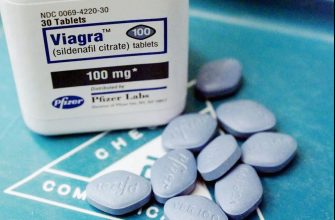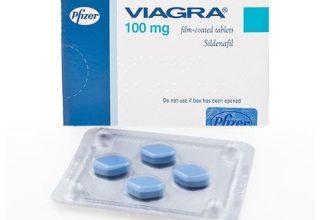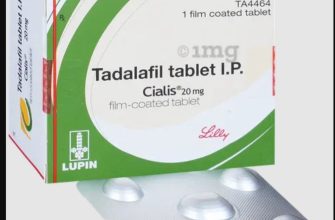Prednisone 40 mg is a powerful corticosteroid, often prescribed for severe bronchitis cases to reduce inflammation and alleviate symptoms. This high dose requires careful monitoring by your doctor. Expect noticeable symptom improvement within days, but complete recovery may take longer.
Remember, Prednisone 40 mg isn’t a standalone cure. It works best alongside other treatments like bronchodilators and antibiotics (if a bacterial infection is present). Your doctor will create a personalized treatment plan based on your specific needs and condition. Always adhere to their prescribed dosage and duration.
Potential side effects include increased appetite, weight gain, mood swings, and insomnia. Serious side effects are rare but require immediate medical attention. Inform your doctor about any unusual symptoms or concerns. Regular blood work might be needed to monitor your response to the medication and check for any complications. Discuss any pre-existing conditions or medications you are currently taking with your doctor before starting Prednisone. This ensures safe and effective treatment.
Specific advice: Drink plenty of fluids to stay hydrated, get adequate rest, and avoid smoking or exposure to irritants. This helps your body fight the infection and recover more quickly. Following your doctor’s instructions meticulously is paramount for optimal results and minimizing potential risks.
- Prednisone 40 mg for Bronchitis: A Detailed Overview
- Understanding the Role of Prednisone
- Potential Side Effects and Precautions
- When to Contact Your Doctor
- What is Bronchitis and How Prednisone Works
- How Prednisone Works
- Important Considerations with Prednisone for Bronchitis
- Prednisone 40mg Dosage for Bronchitis: When is it Prescribed?
- Benefits and Potential Risks of Prednisone for Bronchitis
- Benefits: Faster Recovery and Symptom Reduction
- Potential Risks: Side Effects and Long-Term Use
- Medication Considerations
- Common Side Effects of Prednisone 40mg and Management Strategies
- Alternative Treatments for Bronchitis: When Prednisone Might Not Be Necessary
- Prednisone and Other Medications: Potential Drug Interactions
- Long-Term Use of Prednisone: Risks and Considerations
- Monitoring Your Progress While on Prednisone for Bronchitis
- Regular Weigh-ins
- Blood Pressure Monitoring
- Blood Sugar Monitoring (If Diabetic)
- Observe for Side Effects
- Scheduled Follow-up Appointments
Prednisone 40 mg for Bronchitis: A Detailed Overview
Prednisone, at a 40mg daily dose, is sometimes prescribed for acute bronchitis to rapidly reduce inflammation and alleviate symptoms. This high dose is typically used for a short duration, usually no more than 5-7 days, due to potential side effects. Your doctor will determine the appropriate duration based on your specific condition and response to treatment.
Understanding the Role of Prednisone
Prednisone is a corticosteroid that works by suppressing the body’s immune response, reducing airway swelling and mucus production. This helps to open up the airways, making it easier to breathe. It’s important to remember Prednisone treats symptoms, not the underlying infection causing the bronchitis. Antibiotics might be necessary depending on the cause, which your physician will diagnose.
Potential Side Effects and Precautions
High-dose Prednisone can cause side effects including increased appetite, weight gain, mood changes, insomnia, and increased blood sugar. Serious side effects are less common but possible. Inform your doctor immediately if you experience any unusual symptoms. Sudden cessation of Prednisone after high-dose therapy should be avoided; your doctor will create a tapering schedule to minimize withdrawal symptoms. Prednisone can interact with other medications, so disclose all current medications to your physician.
When to Contact Your Doctor
Seek immediate medical attention if you experience difficulty breathing, chest pain, high fever, or worsening symptoms despite Prednisone treatment. Regular follow-up appointments are recommended to monitor your progress and adjust treatment as needed. Always adhere to your doctor’s prescribed dosage and schedule.
What is Bronchitis and How Prednisone Works
Bronchitis is an inflammation of the bronchial tubes, the air passages in your lungs. Acute bronchitis, the most common type, usually results from a viral infection and typically clears up within a couple of weeks. Symptoms include a cough (often producing mucus), chest congestion, shortness of breath, and sometimes wheezing. Chronic bronchitis, a more serious condition, involves long-term inflammation and is often associated with smoking and other lung irritants.
How Prednisone Works
Prednisone is a corticosteroid medication that reduces inflammation. In bronchitis, it helps to decrease swelling in your airways, making it easier to breathe. This means it eases symptoms like coughing and shortness of breath. Prednisone doesn’t directly kill viruses or bacteria, but it manages the body’s inflammatory response to infection.
Important Considerations with Prednisone for Bronchitis
- Prednisone is a powerful medication. It’s typically used for severe cases of bronchitis or when other treatments haven’t been effective. Your doctor will determine the appropriate dosage and duration.
- Prednisone has potential side effects, including increased blood sugar, weight gain, increased appetite, and mood changes. Discuss these risks with your physician.
- Prednisone should only be taken as prescribed by a doctor. Never stop taking it abruptly without consulting your doctor, as this can lead to withdrawal symptoms.
- While Prednisone can provide significant relief, it’s crucial to address the underlying cause of your bronchitis – whether viral or bacterial. Your doctor may prescribe additional treatments like antibiotics or antiviral medications.
- Hydration: Drink plenty of fluids to help thin mucus and ease coughing.
- Rest: Allow your body time to heal. Avoid strenuous activities.
- Avoid Irritants: Stay away from smoke, dust, and other airborne irritants that can worsen your symptoms.
Remember to consult your doctor before starting any medication, including Prednisone, to ensure it’s the right treatment for your specific situation and to monitor for any side effects.
Prednisone 40mg Dosage for Bronchitis: When is it Prescribed?
Prednisone 40mg for bronchitis is typically prescribed for severe cases that don’t respond to other treatments. This high dose is usually reserved for acute exacerbations of chronic obstructive pulmonary disease (COPD) with significant airway inflammation and breathing difficulties.
Specific scenarios include:
Severe exacerbations of chronic bronchitis: If you experience significant shortness of breath, increased sputum production (especially thick, discolored mucus), and wheezing unresponsive to bronchodilators, your doctor may prescribe Prednisone 40mg to reduce inflammation and improve lung function.
Bronchitis with superimposed infection: When bronchitis is complicated by a bacterial infection, Prednisone can help manage inflammation, though antibiotics are the primary treatment in such cases. Your physician will determine the appropriate course of action.
Failure to respond to other treatments: If standard treatments such as bronchodilators, inhaled corticosteroids, and possibly antibiotics have proven ineffective in alleviating your symptoms, a short course of high-dose Prednisone might be considered.
Important Note: Prednisone 40mg is a powerful medication with potential side effects. It’s never a first-line treatment for bronchitis. Your doctor will carefully weigh the benefits against the risks before prescribing this dose and will likely monitor you closely during treatment. Always follow your doctor’s instructions and discuss any concerns.
Benefits and Potential Risks of Prednisone for Bronchitis
Prednisone, a corticosteroid, can significantly reduce inflammation in the airways, providing rapid relief from bronchitis symptoms like coughing, wheezing, and shortness of breath. This benefit stems from its powerful anti-inflammatory action, suppressing the immune response that contributes to airway swelling. For severe bronchitis, this quick reduction in inflammation can be life-saving, preventing serious complications.
Benefits: Faster Recovery and Symptom Reduction
Studies show Prednisone accelerates recovery time for acute bronchitis, allowing patients to return to normal activities sooner. It’s particularly useful in cases of severe exacerbations, where other treatments haven’t provided sufficient relief. The noticeable improvement in breathing and reduced coughing contributes to better quality of life during illness. However, remember it treats symptoms, not the underlying infection.
Potential Risks: Side Effects and Long-Term Use
Prednisone isn’t without risks. Common side effects include increased appetite, weight gain, mood changes, insomnia, and increased blood sugar. More serious, though less common, side effects can include increased risk of infection, high blood pressure, and stomach ulcers. Prolonged use carries a greater risk of these complications. Always follow your doctor’s instructions regarding dosage and duration of treatment.
Medication Considerations
Prednisone is not a first-line treatment for all bronchitis cases. Your physician will consider the severity of your bronchitis, your medical history, and other factors before prescribing it. Never self-medicate. Discuss potential risks and benefits with your doctor to determine if Prednisone is the right choice for your specific situation. They’ll monitor you for side effects and adjust treatment as needed. Consistent communication with your doctor is crucial for safe and effective use.
Common Side Effects of Prednisone 40mg and Management Strategies
Prednisone 40mg can cause several side effects. Increased appetite leading to weight gain is common. Combat this by focusing on healthy, balanced meals and regular exercise.
Fluid retention and swelling (edema), particularly in the ankles and feet, may occur. Reduce sodium intake and consider elevating your legs when resting to manage this.
Increased blood sugar levels are possible, especially in individuals with diabetes. Monitor your blood sugar closely and discuss adjustments to your diabetes medication with your doctor.
Mood changes, including irritability, anxiety, or insomnia, are relatively frequent. Maintain a regular sleep schedule, practice relaxation techniques like deep breathing, and consider talking to your doctor about potential support options.
High blood pressure can develop. Regularly monitor your blood pressure and discuss it with your physician. Dietary changes and lifestyle adjustments might be recommended.
Increased risk of infections is a serious consideration. Practice good hygiene and avoid contact with sick individuals. Report any signs of infection promptly to your doctor.
Muscle weakness and thinning bones (osteoporosis) are long-term risks associated with high-dose prednisone use. Regular weight-bearing exercise and a calcium-rich diet can help mitigate these risks. Discuss bone density testing with your doctor.
Gastrointestinal issues like heartburn or stomach upset are possible. Take prednisone with food to minimize these effects. Antacids may also be helpful, but you should consult your doctor before using them.
Always consult your physician about any side effects you experience. They can assess the severity and recommend appropriate management strategies based on your individual health status and medication regimen.
Alternative Treatments for Bronchitis: When Prednisone Might Not Be Necessary
Consider home remedies first. Rest is crucial; get plenty of sleep to aid your body’s healing process. Hydration is key; drink lots of fluids like water, clear broths, and herbal teas to thin mucus.
Over-the-counter (OTC) medications can provide relief. Acetaminophen reduces fever and pain. Guaifenesin thins mucus, making it easier to cough up. Dextromethorphan suppresses cough. Always follow package directions.
Inhalers offer targeted relief. Salbutamol (albuterol) relaxes airway muscles, easing breathing. Ipratropium bromide reduces mucus production. Your doctor can help you determine the right inhaler for your needs.
Lifestyle adjustments are beneficial. Avoid irritants like smoke and dust. Use a humidifier to add moisture to the air. Practice good hand hygiene to prevent further infection.
| Treatment | Benefits | Considerations |
|---|---|---|
| Humidifier | Soothes irritated airways | Regular cleaning to prevent mold growth |
| Herbal teas (e.g., licorice root, ginger) | May help soothe coughs and reduce inflammation | Consult your doctor if you have allergies or underlying conditions |
| Saltwater gargles | Can ease throat irritation | Use lukewarm water |
If symptoms worsen or persist for more than a week, seek medical attention. Your doctor can perform a proper diagnosis and recommend the most appropriate treatment plan, which might include antibiotics if a bacterial infection is present.
Prednisone and Other Medications: Potential Drug Interactions
Always inform your doctor about all medications you’re taking, including over-the-counter drugs, supplements, and herbal remedies, before starting Prednisone. Prednisone can interact with many medications, potentially altering their effectiveness or causing adverse effects.
Here are some key interactions to be aware of:
| Medication Class | Specific Medications (Examples) | Potential Interaction |
|---|---|---|
| Blood thinners (anticoagulants) | Warfarin (Coumadin), heparin | Increased bleeding risk. Your doctor may need to adjust your dosage. |
| Nonsteroidal anti-inflammatory drugs (NSAIDs) | Ibuprofen, naproxen | Increased risk of stomach ulcers and bleeding. |
| Diabetes medications | Insulin, metformin | Prednisone can raise blood sugar levels, requiring adjustments to your diabetes medication. |
| Digoxin | Digoxin | Prednisone can increase digoxin levels, potentially leading to toxicity. |
| Potassium-wasting diuretics | Furosemide (Lasix), hydrochlorothiazide | Increased risk of low potassium levels (hypokalemia). |
| Oral contraceptives | Many birth control pills | Prednisone may reduce the effectiveness of oral contraceptives. Discuss alternative birth control methods with your doctor. |
| Immunosuppressants | Cyclosporine, tacrolimus | Increased risk of infections. Close monitoring is necessary. |
| Vaccines | Live vaccines | Avoid live vaccines while taking Prednisone due to an increased risk of infection. |
This table provides examples, and the list is not exhaustive. Always consult your physician or pharmacist for a comprehensive review of potential drug interactions before starting or altering any medication regimen, especially when using Prednisone. They can assess your individual risk and make appropriate recommendations.
Long-Term Use of Prednisone: Risks and Considerations
Prednisone, while effective for treating bronchitis flare-ups, carries significant risks with prolonged use. Doctors generally prescribe it for short periods. Extended use should only occur under strict medical supervision.
Here’s what you need to know:
- Increased Blood Sugar: Prednisone can elevate blood glucose levels, potentially worsening diabetes or causing it in susceptible individuals. Regular blood sugar monitoring is crucial. Consult your doctor about managing this risk.
- Osteoporosis Risk: Long-term prednisone use weakens bones, increasing the fracture risk. Weight-bearing exercise and calcium/vitamin D supplements may help mitigate this, but always discuss this with your physician.
- Weight Gain: Prednisone often causes weight gain, primarily due to fluid retention and increased appetite. A balanced diet and regular exercise are key to managing this side effect.
- High Blood Pressure: Prednisone can raise blood pressure. Regular monitoring is necessary, and lifestyle changes (diet, exercise) along with potential medication adjustments are vital.
- Muscle Weakness: Prednisone can weaken muscles, potentially leading to fatigue and increased injury risk. Gradual exercise may help counteract this, but you must work with a health professional.
- Increased Risk of Infection: Prednisone suppresses the immune system, making you more vulnerable to infections. Practice good hygiene and seek medical attention promptly for any signs of illness.
- Cataracts and Glaucoma: Prolonged use increases the risk of eye problems. Regular eye exams are highly recommended.
- Mood Changes: Some people experience mood swings, anxiety, or depression while on prednisone. Open communication with your doctor is important if you experience these symptoms.
- Withdrawal Symptoms: Stopping prednisone suddenly can cause severe withdrawal symptoms. Always taper off prednisone gradually as directed by your physician.
Remember: This information is not a substitute for professional medical advice. Always discuss your treatment plan and any concerns with your doctor. They can personalize recommendations based on your specific health situation and medical history.
Monitoring Your Progress While on Prednisone for Bronchitis
Track your symptoms daily. Record your cough frequency, severity (scale of 1-10), and sputum production (color and amount). Note any shortness of breath, wheezing, or chest tightness, again using a numerical scale. This detailed record helps you and your doctor assess the Prednisone’s effectiveness.
Regular Weigh-ins
Weigh yourself daily. Prednisone can cause fluid retention, resulting in weight gain. Sudden, significant weight gain warrants immediate contact with your doctor.
Blood Pressure Monitoring
Monitor your blood pressure regularly, ideally at the same time each day. Prednisone can elevate blood pressure. Consistent high readings require medical attention.
Blood Sugar Monitoring (If Diabetic)
If you have diabetes, meticulously monitor your blood sugar levels more frequently than usual. Prednisone can increase blood glucose levels.
Observe for Side Effects
Stay alert for side effects like increased appetite, insomnia, mood changes, or increased risk of infection. Report any concerning symptoms to your physician promptly. Remember to maintain good hygiene and avoid contact with sick individuals.
Scheduled Follow-up Appointments
Attend all scheduled follow-up appointments with your doctor. These visits allow for proper monitoring of your progress and adjustment of your medication as needed.










